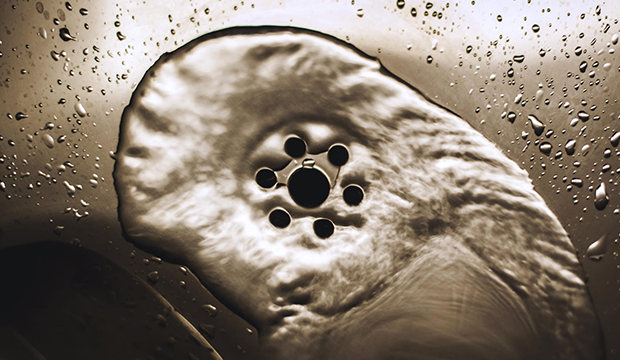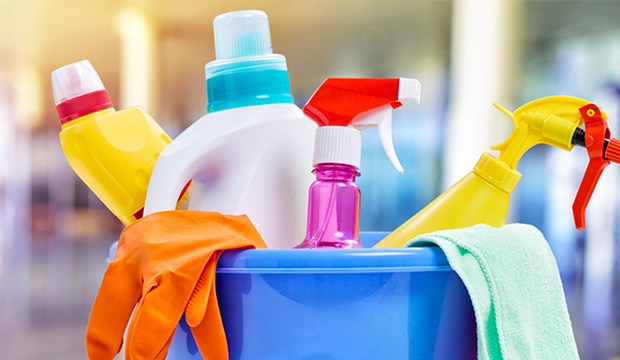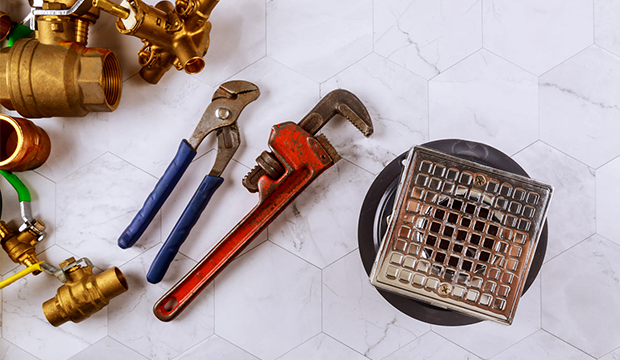We don’t usually consider our noses as delicate chemical sensors, but that is precisely what they are. While conventional wisdom gives all the credit to canine snorts, we humans too are highly sensitive to odour, with some of us with the ability to sniff smell from a mile away. Okay, a mile is an overstatement, but it’s true that some people are more sensitive to odour than others.
And speaking of odours, there’s nothing less comforting than getting ready to take a nice warm shower or bath only to be hit by a disgusting odour oozing from your bathroom drain. When faced with a bad bathroom drain smell, the first crucial step is to find out what its root cause is so that you know what best course of action to take.
COMMON CAUSES OF BATHROOM DRAIN SMELL

More commonly than not, smelly drains indicate the early stages of a blocked drain. Just like plumbing fixtures in your home, your bathroom drain can become clogged and emit a foul smell. The following are the common causes of clogging and bad smell in bathroom drains:
1. DEBRIS IN THE DRAIN
Different things can find their way into your bathroom drain and cause a blockage. The following are the five types of debris that can block your bathroom drain:
Human hair: Many of the most stubborn drain clogs have hair as the main culprit. Long hair is particularly bad news as it can knot up, mingle with other substances, and attach itself to parts of the bathroom drain.
Pet hair: If you share the shower with your adorable pet, it’s a no brainer that they also have something to do with the mess you’re in. Pets such as dogs and cats are often treated like family members, and just like their human counterparts, they shed hair that causes clogs in bathroom drains and pipes.
Soap residue: You can also call it soap scum, and it can accumulate over time. Many traditional bar soaps contain fat or grease. When combined with other debris, soap can form solid clumps that can clog your bathroom drain.
Sand or clay: If you own with pets and have young kids, dirt will somehow find itself in your bathroom. Sand and clay, for instance, naturally absorbs moisture and creates clumps that cause large clogs inside our bathroom drains and pipes.
Mineral buildup: If you use hard water, your bathroom drain can become clogged up by mineral deposits. The buildup eventually reduces water flow, causing back-ups and stinky bathroom drain smell.
Each of the above five types of debris has the potential of clogging bathroom drains on their own. In most cases, however, clogging occurs due to a combination of two or more debris types.
2. MOULD AND MILDEW GROWTH IN THE DRAIN
Anywhere there’s moisture that sits for a prolonged period, you’re most likely to find mould and mildew. The thick pathogenic and toxic bio slime grows in dark, damp places. Like other water-prone areas in your home, bathroom drains and pipes provide an ideal habitat for mould and mildew spores to grow and spread.
Mould and mildew growth can contribute to clogged bathroom drains and release smell into your bathroom. Aside from emitting bad smell, mould emits toxins that cause some health issues. As such, you should remove mould as soon as it grows.
How do you know that the foul smell coming from your bathroom drain is from mould? The smell from mould is distinctively earthy or musty. So, it’s easy to differentiate from odours emancipating from debris-clogged pipes and drains.
HOW TO PREVENT BATHROOM DRAINS FROM CLOGGING

Convention wisdom indicates that an ounce of prevention is worth a pound of cure. There are various ways you can prevent your bathroom drain from clogging in the first place. They include:
- Use a plastic drain cover: If your hair or that of your furry pet tends to shed a lot when washing it, you can take a proactive approach, such as ensuring that you use a drain cover to catch the hair. A drain cover will not only catch hair, but it will also prevent other debris from finding their way into the drain.
- Use a wire mesh strainer: This is an alternative to a plastic drain cover. You can make the wire mesh strainer from a fibreglass screen. Put the screen down the drain hole and ensure that it’s held down on all sides by the drain cover. Check the mesh regularly to remove hair and other debris.
- Avoid grease and fat: Choosing a good soap will also go a long way in ensuring that your bathroom drain doesn’t clog. Be sure to avoid soaps that contain grease and fat.
HOW TO FIX COMMON CAUSES OF BATHROOM DRAIN SMELL

Whether it is excess hair, soap scum, mould, or something else that’s clogging your bathroom drain and causing a foul smell, this is an issue that won’t go away on its own. Fortunately, most bathroom drain clog and odour problems are easy to handle.
If you have tried all precautionary measures and are still unable to keep your bathroom drain clog-free, there several methods that you can try to remedy the problem. The following are the ways to fix common causes of bathroom drain clogs and smells:
- Use a commercial drain cleaning product: You can try using a commercially available bathroom drain cleaner. Choose a product that is made using mild chemicals to avoid damaging your drain and pipes.
- Use a homemade drain cleaner: You’ll be surprised that some basic household items can do similar or even a better job than the commercial drain cleaners.
- With vinegar and baking soda, you can make an effective drain cleaner that can unclog your drains.
- Try pressure cleaning: This is one of the best ways to remove soap buildup from drains and pipes.
- Use a cleaning auger: Employing a cleaning auger, such as a plumber’s snake, is one of the best approaches for removing debris from a clogged bathroom drain.
- Run hot water: Pour hot water down the drain to break down solidified oil, grease, or dirt. You can add some detergent to the hot water to quicken the cleaning process.
WHEN TO CALL A PROFESSIONAL PLUMBER

If the above techniques don’t work, and the clog doesn’t improve, what you have is likely not a quick DIY fix. As such, it’s best to hire a professional plumber to do the job. Besides having extensive knowledge and experience, plumbers also have relevant tools at their disposal. This allows them to fix bathroom drain problems efficiently, quickly, and safely.
Bathroom drain smell is often an indication that you’re in the early stages of having a blocked drain. Don’t let clogged bathroom drains and stinky smell rob comfort from your home.
Call Jedi Plumbing today on 0411 774 381.
